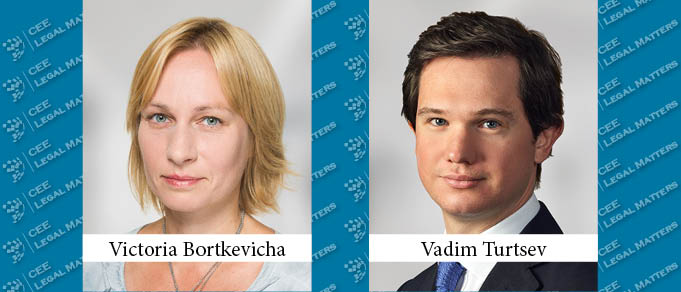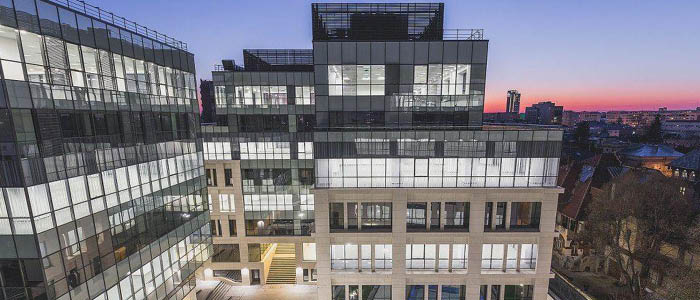Due to the complex constitutional structure of Bosnia and Herzegovina (composed as it is of two entities, Republika Srpska (RS) and Federation of BiH (FBiH), and the Brcko District), logistics, transportation, and shipping matters are regulated on the state level, entity level, and – in FBiH – cantonal administrative level.
Transport & Logistics Overview of Lithuania in 2019
We will start the overview of the transport and logistics sector in Lithuania by showing the key figures of carriage of goods performed by Lithuanian carriers. The amount of goods carried by all means of transport in Q1 and Q2 of 2019 was 35,025 billion tonne-kilometres – over 16% more than over the same period in 2018, when the amount was 30,175 billion tonne-kilometres.
Forwarder or Carrier? Liability of a Freight Forwarder Under Latvian law
The law on carriage of goods is a well-harmonized area of international law – a streamlined set of rules that allows cargo owners and carriers to save valuable time and resources. While freight forwarders are an important element of every consignment it is surprising that many elements of forwarder’s liability are still regulated by national law.
The GDPR’s Effects on the Transportation Sector
The GDPR, which canceled previous European data protection regulations, represents the biggest change in those regulations in 20 years. Naturally, this amendment affects the methods of obtaining and processing personal data regardless of the size and structure of the companies doing so. All institutions in the transportation sector, including land, sea, air, and rail operators, agencies, airlines, and municipalities are also subject to the GDPR’s requirements.
Aircraft Leasing and Sanctions: Know Your Risks
Although not specifically related to Russia, the agreement by the Office of Foreign Assets Control (OFAC) between it and the Apollo Aviation Group (Apollo) on the monetary compensation for the settlement of violations by Apollo of the Sudanese Sanctions Regulations that was announced on November, 7 2019, affects the aircraft leasing sector worldwide.
Russia Reacts: Impact of Sanctions on International Arbitration Involving Russian Parties
Sanctions imposed by the U.S.A, the EU, and other jurisdictions in relation to certain Russian individuals and legal entities have had a substantial impact on international arbitration involving Russian parties. There exist serious concerns as to the ability of sanctioned Russian parties and their contractual counterparts to realize their right to defend themselves in the course of arbitration proceedings. These concerns have led to changes in market practice regarding the choice of the arbitration forum and to some legislative proposals in Russia that, if implemented, would have a dramatic impact on international arbitration involving Russian parties.
Renewable Energy Investments
Poland, which still produces 80% of power and 75% of district heating by coal-fired generation, is about to face an unavoidable and profound transformation of its energy market. The Best Available Techniques (BAT) conclusions for large combustion plants that will enter into force in 2021, the derogation mechanism that will end in 2023, and the medium combustion plant emission limits that will become effective in 2026 all require that enormous and economically questionable investments be made in new filters for coal generation units.
Revolution in Polish Civil Procedure
The key Polish legal act governing dispute resolution, the Civil Procedure Code of 1964, underwent major reform this year, again. The amended version, with almost 300 changes, including many revolutionary ones, became effective on November 7, 2019.
The Restructuring Framework in Poland
On January 1, 2016, Poland revamped its legal framework related to the restructuring of financially distressed businesses with a brand-new Restructuring Law and significantly-amended Bankruptcy Law. The Polish restructuring (and broadly speaking insolvency) framework is now governed by two separate legal acts: the Restructuring Law, which deals with the financial restructuring of indebted companies and businesses, and the Bankruptcy Law, which focuses on the orderly liquidation of the assets of companies and businesses without feasible options to restructure their debts and continue their operations.
Bridging the Gap to Get the Deal Done
The recent upturn of the Slovenian real estate market has yielded a raft of new logistics projects and residential developments, as well as substantially increasing the scope and number of retail real estate transactions. A significant share of Slovenian retail properties changed hands, mostly as a consequence of the financial or organizational restructuring of the previous holders. This opened the market to both institutional and strategic investors.
Mortgage Extension with Special Reference to the Montenegrin Supreme Court’s Legal Position
Claims from Loan Agreements are generally secured by establishing a mortgage over a certain property on the basis of a Mortgage Agreement or a Pledge Statement.
Case Law Developments Support the Commercial Real Estate Market
Estonia’s commercial real estate sector is enjoying steady growth in practically all segments, with the construction of numerous new office buildings, logistics centers, hotels, and industrial buildings. Even though the majority of transactions are still being made by local property funds, there is an increasing inflow of foreign capital looking for decent returns in a stable environment. One critical aspect facilitating foreign investments into Estonia’s property market is the favorable legal environment.
Silver Cities – The Real Estate Implications of an Aging Population?
The world is getting older by the minute, and this is a fact.
Airbnb in the Crosshairs
Tourism in Austria is booming. The capital, Vienna, has reported a 9.9% increase of overnight stays, to 7.94 million, in the period from January to June 2019, a new record. Demand for common rental platforms, such as Airbnb, has increased even more. For several years now, Austria’s federal states, municipal administrations, legislators, and competitors (in particular the hotel industry) have been kept busy with the business model of commercial short-term rentals.
New Chapter in Latvian Construction Law?
The Baltic real estate and construction markets remain active, with a number of sizeable transactions completed during the first few months of 2019 and investment pouring into the development of infrastructure, commercial, and residential projects. For the past decade, the Estonian and Lithuanian real estate markets have been more active than the Latvian market. Now, however, with Estonian and Lithuanian markets becoming more and more saturated, Latvia is attracting an increased amount of interest from developers and investors.
The Rise of the Flexible Workplace
The footprint of flexible workplaces (i.e., co-working spaces) continues to expand as more and more global businesses embrace the modern workforce and the increasing options for work arrangements. Turkey has joined the flexible workplace trend.
Apartments and Suites – Tearing City and Developers Apart
In recent years, the Slovak Real Estate market has experienced significant growth thanks to extensive construction, especially in the capital, Bratislava. This is mainly due to the high demand for apartments, which is also reflected in their price.
Perpetual Usufruct Right Becomes More and More Similar to Freehold
With GDP growth for 2019 projected to be approximately 4%, the Polish economy remains strong, and the country’s real estate sector continues to set new records. The low availability of housing, strong domestic consumption, and stable industry production have boosted the profitability of real estate investments. Demand for land is high and developers compete fiercely for the shrinking number of attractive spots. In August 2019, a new law came into force which may make real properties held in a right of perpetual usufruct (RPU) more attractive than they used to be.









































